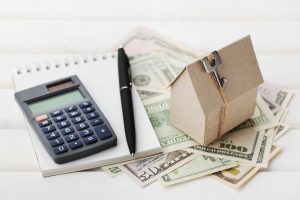The way you market green home features has an effect on how house hunters perceive them and whether they’ll pay more for an eco-friendly property, according to new research by the National Association of Home Builders released last week during the 2019 International Builders’ Show in Las Vegas. “A green home marketed by its energy savings and as having good air quality are the two things that seem to resonate the most with home buyers,” said Rose Quint, the NAHB’s assistant vice president for survey research.
Quint detailed findings on green home features from the NAHB’s 2019 edition of “What Home Buyers Really Want,” based on a nationwide survey of 4,000 recent home buyers or those aspiring to own within the next three years. The findings show that buyers favor green over non-green options when given the choice, Quint said. The survey provided the following breakdown of consumer responses.
| GREEN CHOICE | % IN FAVOR | NON-GREEN CHOICE | % IN FAVOR |
| Features and finishes made of more expensive materials that last longer. | 74 | Features and finishes made of materials that cost less but need to be replaced more often. | 26 |
| Low-maintenance landscaping, with plants that grow in the local climate with minimal watering, weeding, or mowing. | 65 | Conventional landscaping, with a traditional lawn, tree shrubs, etc. | 35 |
| Home oriented to make efficient use of the sun’s energy for heating and cooling. | 63 | Home oriented to optimize the attractiveness of the home as viewed from the street. | 37 |
| A heating and cooling system designed to meet your current needs efficiently. | 63 | A heating and cooling system larger than currently needed with some excess capacity for possible future needs. | 37 |
| Narrower sidewalks and streets with more green space. | 54 | Wider sidewalks and streets. | 46 |
| Home on a continuous, interconnected street with more efficient traffic flow. | 33 | Home on a cul de sac or other street design with limited traffic flow. | 67 |
HOW MUCH MORE WILL THEY PAY?
While green features appear appealing, the question remains whether home shoppers would be willing to pay a premium for them. Sixty-eight percent of buyers say they want an environmentally friendly home, but they admit they aren’t willing to pay more for it, according to the survey. “Home buyers aren’t as willing to open up their pocket books to help save the environment, but when you rephrase the question and talk about the savings that owning such a home would bring to them, then you get different responses,” Quint said.
Case in point: When asked if they’d be willing to pay more if they could save more on annual utility costs, buyers overwhelmingly say yes. For example, if they could save $1,000 per year on utilities, 46 percent of home buyers say they’d then be willing to pay an extra $1,000 to $9,999 on a home with green features; 37 percent would pay $10,000 or more for that type of savings. That said, buyers purchasing homes in lower price brackets (less than $150,000) were the least willing to make an investment in green home features, the study shows.
Quint urged those in the housing industry to change their tone when promoting green homes. Most consumers are unfamiliar with green certification programs, such as LEED or HERS (24 percent and 22 percent, respectively). “That doesn’t seem to resonate or turn as many hearts on to going green,” Quint said. Instead, promote the money savings in utility bills that owners can gain from owning such a home, Quint said.
| MOST DESIRABLE GREEN FEATURES | % WHO WANT | LEAST DESIRABLE GREEN FEATURES | % WHO WANT |
| Energy Star-rated windows | 89 | Reduced flow shower heads | 49 |
| Energy Star-rated appliances | 86 | Geothermal heating and cooling | 49 |
| Energy Star rating for the entire home | 81 | Components built from sustainable harvested lumber | 46 |
| Efficient lighting (less energy than traditional light bulbs) | 77 | Components made from locally produced materials | 45 |
| Triple-pane insulating glass windows | 77 | Gas-filled (argon or krypton) insulating glass | 43 |
| Insulation higher than required by code | 73 | Home components made of recycled materials | 42 |
| Water-conserving toilets | 63 | Barrels or cisterns collecting rainwater for irrigation, toilets, etc. | 40 |
| Low-e insulating glass windows | 62 | Roof-mounted, electricity-generating wind turbine | 36 |
Reprinted with permission from NAR.






